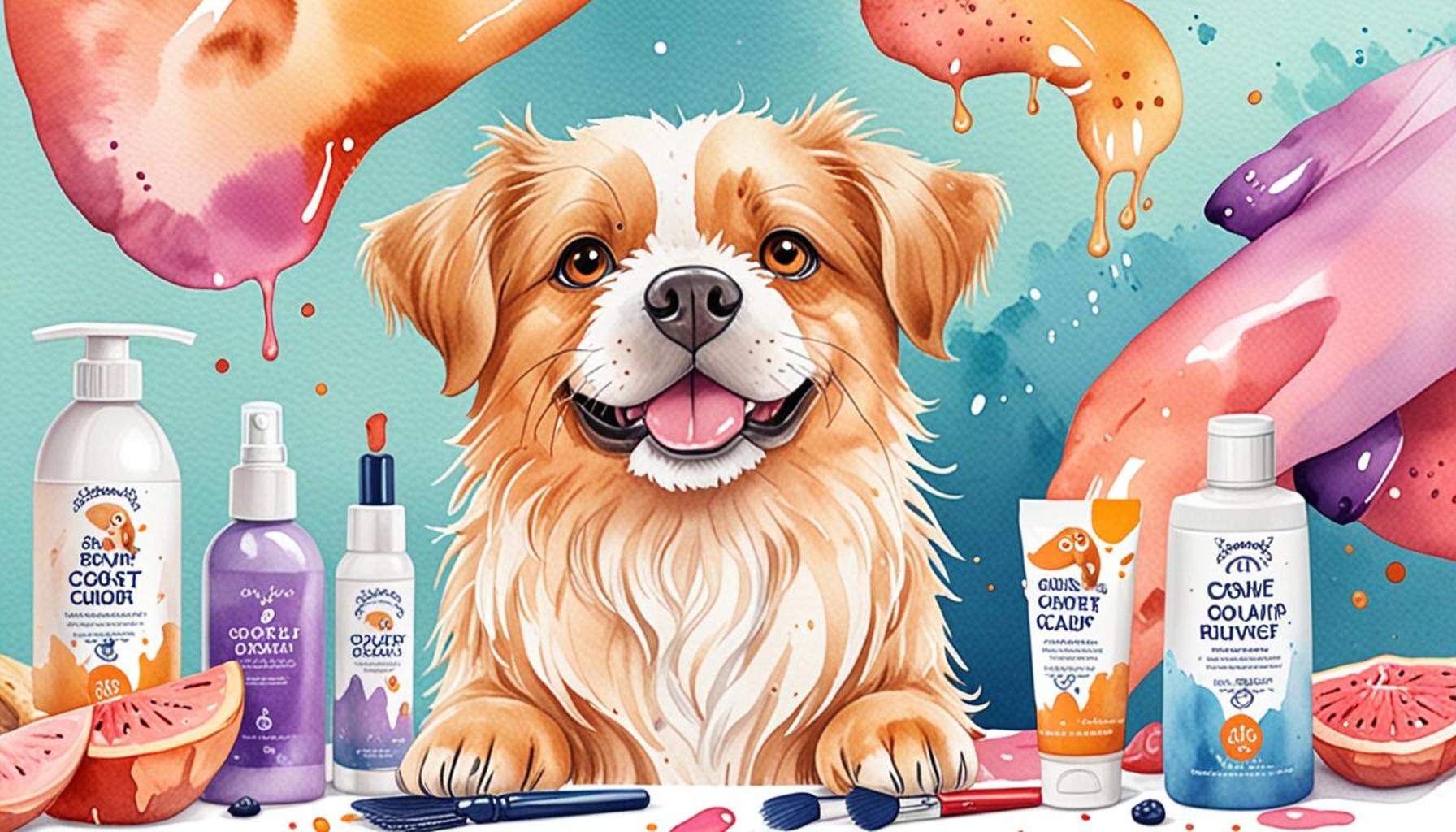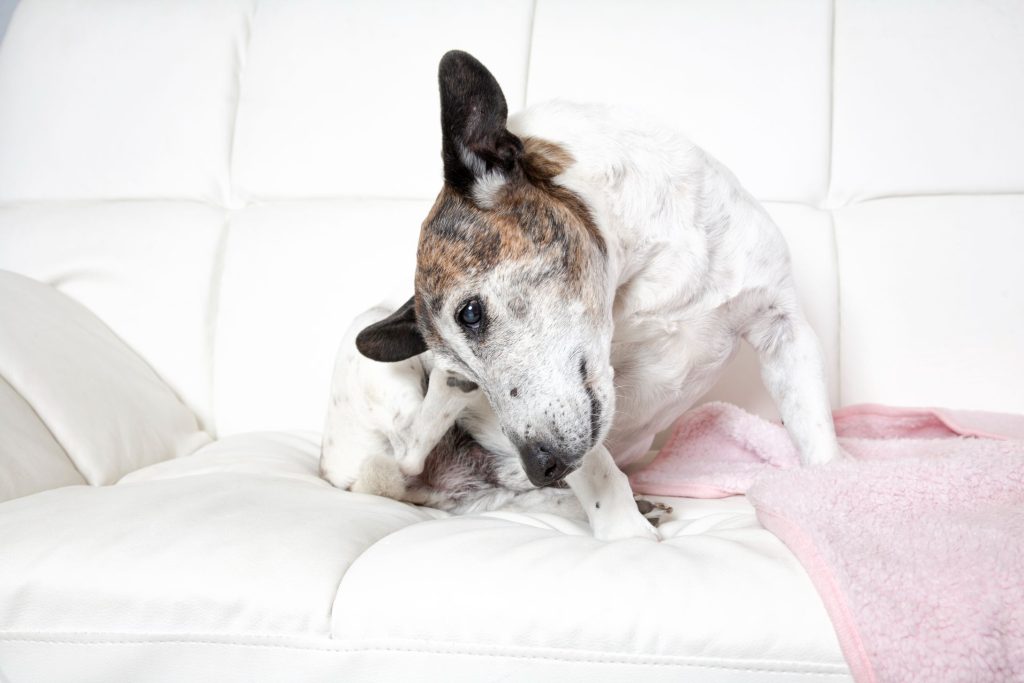Skin and Coat Care: Tips to Prevent Dermatological Issues in Pets

Understanding Your Pet’s Skin and Coat
Your furry friends rely heavily on their skin and coat to form a protective barrier against various environmental factors. Just as human skin acts as a shield, so does your pet’s coat safeguard them from harsh weather, parasites, and injuries. To maintain their skin and coat health, it is vital for pet owners to be proactive in preventing dermatological issues. Left unchecked, these issues can lead to discomfort, behavioral changes, and serious health complications.
Common Dermatological Issues
- Allergies: Allergies are surprisingly common in pets, manifesting in various ways. Whether it’s due to food such as grains or environmental factors like pollen or dust mites, allergic reactions often lead to intense itching and inflammation. For instance, dogs with seasonal allergies may scratch incessantly during spring when grass and floral pollen are at their peak.
- Parasites: Fleas, ticks, and mites not only cause irritation but can also lead to secondary infections. Fleas can induce flea allergy dermatitis, which can leave your pet with painful sores. It’s crucial to keep pets treated with veterinarian-recommended preventive medications, especially during warm weather when these parasites thrive.
- Dry Skin: Seasonal changes and dietary deficiencies can wreak havoc on your pet’s skin, leading to dryness and flaking. Low humidity in winter and freezing temperatures often exacerbate this condition, displaying symptoms like itching and redness. Providing moisture-rich diets and hydrating treatments can help mitigate these effects.
Importance of Regular Care
Just like humans, our pets require regular skin and coat care to thrive. Simple routines can not only help prevent serious dermatological issues but also enhance their overall wellness. Regular grooming helps distribute natural oils in their coat while allowing pet owners to inspect for any irregularities. By staying informed and proactive, you can ensure a solid and healthy skin barrier for your pets.
What You Can Do
- Regular Bathing: Bathing your pet regularly is essential, but it’s important to use shampoos and conditioners specifically formulated for animals. Human products can often strip natural oils, leading to additional skin issues.
- Proper Nutrition: Feeding your pet a balanced diet rich in omega fatty acids, commonly found in fish oils and certain vegetables, promotes healthy skin. Quality pet food brands often highlight their formulations aimed at supporting skin health, so be sure to read the labels carefully.
- Routine Check-ups: Regular veterinary visits can help catch and address skin issues early. Many veterinarians offer specialized skin evaluations as part of their routine examinations, allowing for early intervention when issues arise.
With these insights, pet owners can take actionable steps toward a healthier life for their beloved companions. By understanding the importance of skin and coat care, you will set the stage for a lifetime of comfort and happiness for your pets. Stay tuned for detailed tips and strategies on how to prioritize your pet’s skin and coat health!
DISCOVER MORE: Click here to uncover the hidden costs of pet adoption
Proactive Measures for Skin and Coat Health
Taking a proactive approach to your pet’s skin and coat care is essential for preventing potential dermatological issues that could arise over time. Understanding the foundational elements that contribute to healthy skin can empower pet owners and enhance the quality of life for their beloved companions. Let’s explore some effective strategies that will keep your pet’s skin in prime condition and their coat looking fabulous.

Grooming Basics
Regular grooming is perhaps the simplest yet most effective way to maintain your pet’s skin and coat health. Not only does brushing help remove dirt and dead hair, but it also stimulates blood circulation and helps distribute natural oils throughout the coat. Each breed has its own grooming needs, so understanding your pet’s specific requirements will yield the best results. Here’s a quick guide on grooming frequencies:
- Short-haired breeds: Generally, brushing once a week is sufficient to remove loose hair and debris.
- Medium-haired breeds: A routine of brushing 2-3 times a week can prevent matting and tangles.
- Long-haired breeds: Daily grooming is often necessary to keep their coat healthy and free of knots.
Choosing the Right Supplies
Selecting the right grooming tools can significantly impact the effectiveness of your pet’s grooming routine. Invest in quality brushes tailored to your pet’s coat type, as this can make a world of difference. For example, slicker brushes work well for detangling while bristle brushes are perfect for distributing oils. Additionally, ensure that you have pet-friendly shampoos and conditioners on hand, as using the right products is imperative for maintaining skin and coat balance.
Environmental Factors and Their Impact
The environment plays a crucial role in the health of your pet’s skin and coat. Factors such as humidity, temperature fluctuations, and exposure to allergens or irritants can compromise your pet’s skin integrity. Here are some tips to mitigate these environmental impacts:
- Humidity control: Consider using humidifiers in dry seasons to ensure optimal moisture levels indoors.
- Seasonal protection: During extreme temperatures, keep your pets sheltered and use protective gear like booties or jackets if necessary.
- Allergen reduction: Regularly clean your home to minimize dust, pollen, and dander, especially if your pet is prone to allergies.
By being vigilant and adopting these practical grooming habits and environmental controls, you can take significant strides towards ensuring your pet’s skin and coat remain healthy and vibrant. In the following sections, we will delve deeper into dietary considerations and professional care options to further enhance your pet’s overall dermatological well-being.
| Category | Details |
|---|---|
| Grooming | Regular grooming helps to remove dirt, allergens, and dead hair, promoting healthy skin. |
| Nutrition | A balanced diet rich in omega fatty acids supports a shiny coat and reduces skin irritation. |
Incorporating proper grooming techniques is essential to your pet’s skin and coat care routine. Not only does grooming eliminate excess fur and debris, but it also stimulates natural oils, which can keep the skin hydrated. For instance, using a suitable brush based on your pet’s coat type can make a considerable difference in maintaining a healthy skin barrier. Moreover, focusing on a diet specifically formulated for skin health is key. Foods enriched with omega-3 and omega-6 fatty acids are known to enhance coat luster while minimizing allergic reactions and preventing skin diseases. Understanding the impact of your pet’s nutrition on their overall dermal health cannot be overstated. By prioritizing these two vital elements—grooming and nutrition—pet owners will be taking decisive steps against dermatological issues. This proactive approach can prevent many future health concerns, ensuring your furry companions thrive with both healthy skin and a luscious coat. Discovering more about enhancing your pet’s health through simple practices can lead to a more joyous and fulfilling life together.
DON’T MISS OUT: Click here to discover inspiring stories
Dietary Considerations for Healthy Skin and Coat
Nutrition plays a vital role in maintaining your pet’s skin and coat health. A well-balanced diet rich in essential nutrients can bolster your pet’s natural defenses against dermatological issues. To optimize skin and coat health, focus on incorporating quality ingredients and specific nutrients into your pet’s diet.
Essential Fatty Acids
One of the most significant components for skin vitality is the inclusion of essential fatty acids, particularly Omega-3 and Omega-6. These fatty acids are crucial for maintaining the skin’s barrier properties and reducing inflammation. Foods specifically formulated for pets, often labeled as containing high levels of fatty acids, can significantly improve coat shine and skin hydration. Additionally, you can consider incorporating fish oil supplements or flaxseed oil into meals, which can be particularly beneficial for pets with dry or flaky skin.
Quality Proteins
Proteins form the building blocks of healthy skin and fur, making their quality and source paramount. High-quality animal proteins provide amino acids that are essential for developing healthy skin cells. When choosing commercial pet food, look for products with real meat listed as the first ingredient, as this indicates a higher protein quality. Grain-free options or those supplemented with nutritious grains such as quinoa can also be beneficial for some pets, supporting their overall health.
Hydration is Key
Hydration cannot be underestimated when discussing skin and coat care. Dehydration can lead to dry, flaky skin and a dull coat. Ensure your pet has access to fresh, clean water at all times. Consider introducing moisture-rich foods like wet or canned food, as these can enhance hydration and provide additional nutrients that promote skin health.
Professional Care: When to Seek Help
In some cases, despite your best efforts, persistent skin issues may arise. Knowing when to seek professional help from a veterinarian can make all the difference in addressing your pet’s dermatological concerns. Here are signs that warrant immediate veterinary attention:
- Persistent Itching or Scratching: If your pet is obsessively scratching or biting at their skin, it could indicate an underlying condition such as allergies or parasites.
- Skin Lesions or Hot Spots: Any abnormal growths, sores, or lesions should be evaluated by a veterinarian, as these could be signs of infection or other significant issues.
- Hair Loss: Sudden or patchy hair loss, particularly if accompanied by redness or inflammation, may suggest a skin disorder that requires treatment.
Additionally, a veterinarian may provide professional grooming and skin treatment options such as medicated shampoos, topical treatments, or even allergy testing if needed. Regular checkups can also ensure that your pet’s skin and coat are monitored for changes over time, thus establishing a baseline for their dermatological health.
By integrating a balanced diet and being aware of when to seek professional guidance, pet owners can significantly enhance their furry friend’s skin and coat health. These proactive measures will go a long way in preventing dermatological issues, ultimately leading to happier, healthier pets.
DIVE DEEPER: Click here to learn how to incorporate obedience training into your daily routine</a
Conclusion
In conclusion, skin and coat care is an essential aspect of pet health that should never be overlooked. It is undeniably important for pet owners to adopt a holistic approach that combines nutrition, regular grooming, and professional veterinary care to enhance their furry companions’ overall well-being. By ensuring a balanced diet rich in essential fatty acids and high-quality proteins, pet owners can effectively fortify their pets’ skin against various dermatological issues. Remember, adequate hydration is just as crucial; pets must always have access to fresh water and moisture-rich foods to keep their skin supple.
Regular observation of your pet’s skin and coat will empower you to catch early signs of potential problems, allowing for timely intervention. Moreover, understanding the triggers that may cause skin irritation, from environmental allergens to grooming products, can help you create a safer space for your pets. Seeking professional guidance from a veterinarian when there are persistent skin issues or concerning changes will ensure that your pet receives the appropriate treatment and care, preventing unnecessary discomfort or more severe conditions.
Ultimately, cultivating a routine that prioritizes skin and coat health will lead to happier, healthier pets. By taking these crucial steps, you not only protect your pet from potential dermatological concerns but also foster a bond rooted in love and care. As a devoted pet owner, investing time and effort into your pet’s skin and coat care will undoubtedly contribute to a longer, more vibrant life together.


